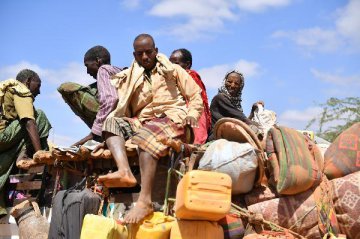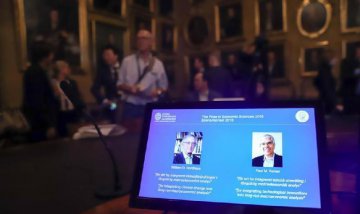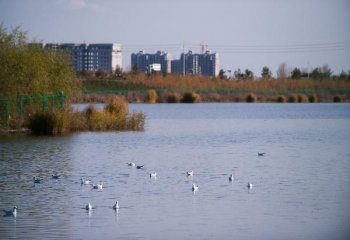UNITED NATIONS, Sept. 25 (Xinhua) -- World leaders attending the ongoing General Debate of the 74th session of the United Nations General Assembly (UNGA 74) on Wednesday continued to call for international cooperation to tackle global warming.
"Climate change is frustrating efforts to raise the standard of living for the world's poor. Scientists have spoken, and we have seen with our own eyes, the devastating impact that climate change has had on our environment," Zambian President Edgar Lungu said.
Recalling early this year, three of Zambia's neighboring countries - Malawi, Mozambique and Zimbabwe - were affected by cyclones, Lungu said that not far away, half of Zambia experienced a severe drought which has resulted in low crop productivity, and low water levels for hydroelectricity generation.
"Thus, opposite climatic extremes are occurring within the same neighborhood," he said.
"The impact of climate change requires global collaborative efforts, and support for the mitigation and adaptation strategies," he said.
"As a developing country, Zambia needs assistance to enhance her capacity in key areas such as scientific research, early warning, rapid response, and transfer of appropriate technologies to help cope with the negative impact of climate change," said the president.
"Furthermore, scaling up global efforts in addressing climate change should invariably include the increased accessibility to financial support, particularly for countries with limited resources, to enable them make their fair contribution to this global effort, and also bear the general climate-change-induced cost burdens," he added.
"We care about nations facing extinction through the slow weapon of mass destruction - the climate catastrophe," Estonian President Kersti Kaljulaid warned. "We care about nations facing famine, and famine-induced disturbances due to climate change."
Climate change remains "the biggest existential challenge" the world is facing. In this light it is "disturbing to know that we still keep subsidizing trillions of dollars into its source - the fossil fuel industry," Kaljulaid complained.
"No place on Earth will be untouched and none of us can escape it (destructive force of climate change). Many people across the globe already experience threats with regard to their livelihoods and, indeed, lives," she added.
"Climate change and environmental degradation is one of the few things where we need to share collective responsibility," the president stressed. "In this battle we are all on the same side and it is the only way we can win."
Recalling the collective effort that mankind made in 1987 to protect the ozone layer by phasing out numerous substances that were responsible for ozone depletion, she said "collective action" of mankind is fairly important.
"As a result, the ozone hole in Antarctica has since then been slowly healing," said the president.
Georgian President Salome Zourabichvili said that "we are already feeling directly climate change's effects and understand our responsibility to act and preserve our planet so that our children have a place to live."
"There are territories turning into deserts or flooded by rising seas, or destroyed by hurricanes like we have just witnessed in the Bahamas or by fires like in Amazonia," she said.
The president commended the UN Climate Action Summit held two days ago, which demonstrated the momentum and showed the potential to leap forward by giving the climate community more ambitious measures for implementing the Paris Agreement.
"Georgia, as many small countries, does not have industries that produce greenhouse gases. But like any other state, we feel the impact and we adapt," she said.
Noting that Georgia is developing an integrated climate policy process, she said her country is putting in place climate-friendly incentives in the energy sector as well as green economy and energy efficiency policies.
"Prevention is key here," the president noted.
"In the Horn of Africa region, a complexity of factors has, in the last three or so decades, led to multi-layered threats to peace. These are exacerbated by disruptive effects of climate change, introducing ecological vulnerabilities to a delicate security context," said Kenyan President Uhuru Kenyatta.
"In the Horn of Africa we witness a confluence of climate change and conflict," said the president. "Cyclic droughts pressure food supply, cause competition over land, water and other resources, and become a driver of conflicts."
Kenyatta voiced his support for the Intergovernmental Panel on Climate Change (IPCC) Special Report on global warming of 1.5 degrees Celsius, which points to "the urgent actions" needed to avert catastrophic global climate change.
The president said that Kenya has embarked on programs for sustainable pro-active climate action. "We target to increase our forest cover from the current 7 percent to 15 percent by 2022."
Speaking of development financing, the president said that Kenya needs an estimated 2.5 trillion to 3 trillion U.S. dollars annually to finance sustainable development goals and climate action and target the critical needs of its people.
A lengthy part of Irish President Michael D. Higgins' speech was dedicated to climate change. "The challenges facing the international community today - interconnected and truly global as they are - are numerous, and none is more urgent than climate action."
"The devastating impact of Hurricane Dorian in the Bahamas tells us that the need for action is staring us in the face. We must show solidarity and support for the Bahamas and all countries in the front line of the climate emergency we are living through," he said.
The cost of inaction is catastrophic, far greater than what it will cost us to set out on a truly meaningful, corrective path. With the Paris Agreement, we have both the framework and the foundations to move forward," said the president.
"We must see and promote the connection between the measures needed to respond to climate change, that will end the exclusions of global poverty, and meet the sufficiency needs of a global community in terms of food, nutrition, education, health and housing," he added.
The president said he agreed with UN Secretary-General Antonio Guterres in the view that schoolchildren have grasped the urgency of climate action better than some global leaders.
"Young people, and citizens of all generations, are asking us now for more than a reassuring verbal response to climate change. They are seeking that authenticity that is revealed when words are turned into actions," said the president.
Ghanaian President Nana Akufo-Addo called on the international community to "direct our energies to what we can and should do to counteract the danger (of climate change), and stop unnecessary arguments."
"Nature has been brutal this year in demonstrating to us that our climate is changing, and we are probably pushing our world to destruction," the president warned.
"The devastation wreaked by Cyclone Idai, Hurricane Dorian, the extreme summer temperatures across Europe, surely provide the evidence, if some were still needed, that it is time to take action to bring back our world from the precipice," the president noted.
The General Debate of UNGA 74 opened Tuesday at the UN headquarters in New York with the theme of "Galvanizing multilateral efforts for poverty eradication, quality education, climate action and inclusion."
UN Climate Action Summit opened Monday prior to the UNGA 74 General Debate, serving as a forum to hold countries accountable to the international commitments they made to cut global warming as part of the Paris Agreement.
It was preceded by the Youth Climate Summit on Saturday, where participants from across the globe showcased their solutions on how to combat the crisis.





















Latest comments